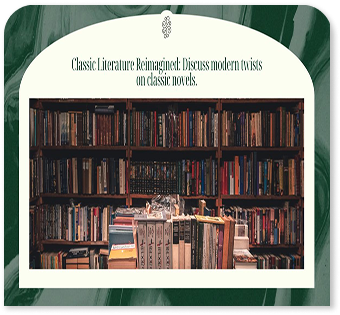-
Mon-Fri: 10AM to 8PM 01722665665
-
My Account
-
-
0
Total :
₹ 0.00

The textbook is published by the National Council of Educational Research and Training (NCERT), which is a renowned educational body in India responsible for formulating policies and guidelines for school education.
The primary focus of the NCERT Mathematics textbook is to provide students with a comprehensive understanding of essential mathematical concepts, including rational numbers, linear equations, geometry, data handling, and more, while fostering critical thinking and problem-solving skills.
The textbook covers a wide array of topics essential for 8th-grade mathematics, including rational numbers, linear equations, quadrilaterals, data handling, squares and square roots, cubes and cube roots, algebraic expressions, mensuration, and introduction to graphs.
Absolutely! The NCERT Mathematics textbook is designed for both classroom learning and self-study. It includes clear explanations, numerous practice problems, and an "Answers" section that allows students to validate their solutions and track their understanding.
The textbook emphasizes real-world applications of mathematical concepts, helping students see the relevance of mathematics in everyday scenarios, such as data handling and geometrical understanding, which fosters practical learning.
Yes! The textbook features a "Just for Fun" section that includes interactive problems and mathematical challenges aimed at stimulating students' curiosity and interest in mathematics, making learning enjoyable.
Absolutely! The diverse exercises and problems presented in the textbook make it suitable for group study sessions. Students can collaborate to solve mathematical problems, discuss concepts, and explain solutions to one another, enhancing their understanding and teamwork skills.
NCERT textbooks are crafted by education experts and are aligned with the National Curriculum Framework. They emphasize conceptual understanding over rote memorization, making them beneficial for developing genuine mathematical thinking.
The ‘For Fun’ section is designed to make mathematics enjoyable by presenting puzzles, games, and creative challenges. This promotes a positive attitude toward math learning and encourages students to explore mathematical concepts beyond the standard curriculum.
No Description Added
The textbook is published by the National Council of Educational Research and Training (NCERT), which is a renowned educational body in India responsible for formulating policies and guidelines for school education.
The primary focus of the NCERT Mathematics textbook is to provide students with a comprehensive understanding of essential mathematical concepts, including rational numbers, linear equations, geometry, data handling, and more, while fostering critical thinking and problem-solving skills.
The textbook covers a wide array of topics essential for 8th-grade mathematics, including rational numbers, linear equations, quadrilaterals, data handling, squares and square roots, cubes and cube roots, algebraic expressions, mensuration, and introduction to graphs.
Absolutely! The NCERT Mathematics textbook is designed for both classroom learning and self-study. It includes clear explanations, numerous practice problems, and an "Answers" section that allows students to validate their solutions and track their understanding.
The textbook emphasizes real-world applications of mathematical concepts, helping students see the relevance of mathematics in everyday scenarios, such as data handling and geometrical understanding, which fosters practical learning.
Yes! The textbook features a "Just for Fun" section that includes interactive problems and mathematical challenges aimed at stimulating students' curiosity and interest in mathematics, making learning enjoyable.
Absolutely! The diverse exercises and problems presented in the textbook make it suitable for group study sessions. Students can collaborate to solve mathematical problems, discuss concepts, and explain solutions to one another, enhancing their understanding and teamwork skills.
NCERT textbooks are crafted by education experts and are aligned with the National Curriculum Framework. They emphasize conceptual understanding over rote memorization, making them beneficial for developing genuine mathematical thinking.
The ‘For Fun’ section is designed to make mathematics enjoyable by presenting puzzles, games, and creative challenges. This promotes a positive attitude toward math learning and encourages students to explore mathematical concepts beyond the standard curriculum.


